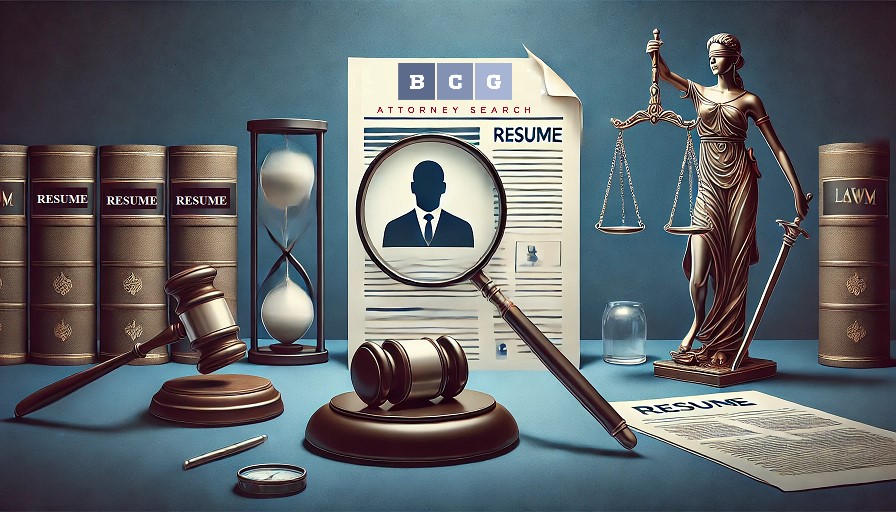
The Big Question: Can Your Law Firm Do Better?
When assessing lateral hire candidates, the fundamental question to ask is whether your firm can do better. With today’s competitive legal market, understanding 2025 recruitment trends in lateral hiring provides crucial context for assessing whether your firm can do better. Here are key types of candidates that often pose risks:
1. Multiple Unrelated Practice Areas
Unrelated Practice Areas: Candidates who have experience in multiple, unrelated practice areas, such as entertainment law and trust and estates, often struggle to fit into a specialized role at a law firm. Law firms typically seek specialists who bring deep expertise and a unique value proposition to their practice area. Generalists or those with disparate practice areas may lack the depth needed to excel in any one area. Firms facing issues with generalists should review practical ways of overcoming common challenges in lateral hiring.
2. Solo Practitioners Without Business
The Challenges of Solo Practitioners: Solo practitioners without a substantial book of business pose several challenges:
- Job Stability and Performance: Solo practitioners often become solos due to difficulties in securing or maintaining a position in a law firm. Their work is not subjected to the rigorous review and standards found in a law firm setting, which can lead to the development of bad habits.
- Resentment Towards Firm Structure: Solos may resist the structured environment of a law firm, preferring the autonomy they experienced as independent practitioners.
- Client Retention Risks: There is always a risk that solo practitioners will leave and take clients with them, particularly if they have a strong desire to run their own business.
Exceptions can be made for those who have been successful solos after a long tenure in a law firm, but such cases are rare. When solos do bring value, it’s usually in line with firms that are maximizing growth through lateral hiring strategies.
See Related Articles:
- Lateral Hiring: Delegating the Search Process to a Professional Firm
- Maximizing Your Law Firm's Growth: The Ins and Outs of Lateral Hiring Strategies
- Why Law Firms Should Rarely (if Ever) Hire Lateral Candidates Coming from Practice Settings Other Than an Organized Law Firm
3. Lack of Law Firm Experience
Inexperience in Law Firms: Candidates who have never worked in a law firm, or those who have been out of a law firm for more than a year, face significant hurdles:
- Lack of Training: These candidates often lack the foundational training that law firms provide. For example, an associate who has only clerked for a judge and never worked in a law firm is unlikely to have developed the necessary skills and work habits.
- Unproven Capability: Without prior law firm experience, there is no assurance that the candidate can thrive in a firm environment, meet high performance standards, or handle the demands of firm clients. To mitigate these risks, law firms must prioritize due diligence and background checks in lateral hiring.
4. Recent Law School Graduates
Insufficient Experience: Candidates who graduated less than a year ago are generally not suitable lateral hires:
- Minimal Training: It typically takes at least a year, often two to five years, for a new attorney to receive sufficient training and become effective in their role. Law firms seek candidates in the three to six-year range, where they are most productive and efficient.
- Unwillingness to Invest: Law firms are reluctant to invest in candidates who require significant training and are not immediately productive.
Firms can sidestep these pitfalls by focusing on avoiding common mistakes in lateral hiring.
5. Candidates Not Currently in Law Firms
Non-Law Firm Experience: Candidates currently working in-house, in government roles, or at accounting firms are often seen as unsuitable:
- Mismatch in Skill Sets: The skill sets and work environments in these roles differ significantly from those in law firms. These candidates may struggle with the transition back to a law firm’s rigorous demands.
- Doubtful Commitment: If a candidate has chosen to leave a law firm once, there is a concern they may not stay long-term if they rejoin a firm.
- Quality of Work: The quality and standards of work in non-law firm environments can vary widely, and firms may be hesitant to hire without clear benchmarks. Success in such cases depends on mastering the art of lateral moves with strategic insight.
See Related Articles:
-
Broken Promises in Lateral Hiring
-
A History of Legal Market Conditions and Attorney Lateral Hiring
-
Lateral Hiring: Proven Strategies for Interviewing Legal Candidates
6. Unemployed Candidates
Long-Term Unemployment: Candidates who have been unemployed for extended periods are particularly risky:
- Perceived Red Flags: Unemployment often raises questions about a candidate’s performance, stability, and employability. Law firms prefer candidates who are currently employed, as this suggests they are valued and productive.
- Economic Downturn Exceptions: Even during economic downturns, those let go are often viewed as less essential or lower-performing. Quick re-employment can mitigate some of these concerns, but prolonged unemployment is a major red flag.
Hiring committees often see long-term unemployment as the ultimate warning, similar to the #1 red flag firms watch for in partner-level candidates.
7. Lack of Stability
Frequent Job Changes: Candidates who frequently change jobs, moving every year or two, signal instability:
- Performance Concerns: Frequent moves suggest performance issues or an inability to settle into a role, both of which are unattractive to prospective employers.
- Risk of Non-Commitment: Hiring such candidates carries a high risk that they will leave shortly after joining, making it difficult for the firm to justify the investment. These concerns echo the 10 candidate red flags that can cost firms dearly.
8. Specific Practice Area Challenges
Oversaturated Markets: Certain practice areas, like corporate law, can become oversaturated with candidates, making it harder for individuals to stand out. Conversely, smaller markets like Omaha or Reno may be more forgiving and open to less-than-perfect candidates due to lower supply. Compensation and positioning play a role in these markets too, making bridging salary gaps strategically an important tactic.
9. Senior Attorneys Without Business
Older Graduates Without Clients: Senior attorneys (graduated before 2010) who lack a book of business are generally unsuitable:
- Financial Liability: Without clients to bring in revenue, these candidates are seen as financial liabilities unless they are applying for specific openings where the firm needs their expertise.
10. Non-Partner, Associate, or Counsel Roles
Lower Commitment Roles: Candidates in roles such as staff attorney or contract attorney often lack the commitment and drive found in more senior positions:
- Perceived Lower Quality: These roles are often perceived as less challenging and may attract attorneys who are less competitive or ambitious.
Job-hopping is a classic signal of risk, as explained in Understanding Red Flags in Long-Term Employment Potential, which outlines how attorneys can manage this perception.
Conclusion
Understanding the criteria that make lateral hire candidates risky for law firms can help you determine the best fit for your firm. Focus, specialization, and the right experience level are key factors. By identifying risky candidates, your firm can avoid potential pitfalls and build a stronger, more effective team. To see real-world examples of potential pitfalls in hiring lateral candidates from atypical backgrounds, check out this detailed video on lateral hiring risks.
- For a deeper look at specific candidate warning signs, see 10 Candidate Red Flags That Could Cost Your Law Firm Big Time, which highlights the traits most likely to lead to costly mis-hires.
About Harrison Barnes
No legal recruiter in the United States has placed more attorneys at top law firms across every practice area than Harrison Barnes. His unmatched expertise, industry connections, and proven placement strategies have made him the most influential legal career advisor for attorneys seeking success in Big Law, elite boutiques, mid-sized firms, small firms, firms in the largest and smallest markets, and in over 350 separate practice areas.
A Reach Unlike Any Other Legal Recruiter
Most legal recruiters focus only on placing attorneys in large markets or specific practice areas, but Harrison places attorneys at all levels, in all practice areas, and in all locations-from the most prestigious firms in New York, Los Angeles, and Washington, D.C., to small and mid-sized firms in rural markets. Every week, he successfully places attorneys not only in high-demand practice areas like corporate and litigation but also in niche and less commonly recruited areas such as:
- Immigration Law
- Workers Compensation
- Insurance
- Family Law
- Trust and Estate
- Municipal law
- And many more...
This breadth of placements is unheard of in the legal recruiting industry and is a testament to his extraordinary ability to connect attorneys with the right firms, regardless of market size or practice area.
Proven Success at All Levels
With over 25 years of experience, Harrison has successfully placed attorneys at over 1,000 law firms, including:
- Top Am Law 100 firms such including Sullivan and Cromwell, and almost every AmLaw 100 and AmLaw 200 law firm.
- Elite boutique firms with specialized practices
- Mid-sized firms looking to expand their practice areas
- Growing firms in small and rural markets
He has also placed hundreds of law firm partners and has worked on firm and practice area mergers, helping law firms strategically grow their teams.
Unmatched Commitment to Attorney Success - The Story of BCG Attorney Search
Harrison Barnes is not just the most effective legal recruiter in the country, he is also the founder of BCG Attorney Search, a recruiting powerhouse that has helped thousands of attorneys transform their careers. His vision for BCG goes beyond just job placement; it is built on a mission to provide attorneys with opportunities they would never have access to otherwise. Unlike traditional recruiting firms, BCG Attorney Search operates as a career partner, not just a placement service. The firm's unparalleled resources, including a team of over 150 employees, enable it to offer customized job searches, direct outreach to firms, and market intelligence that no other legal recruiting service provides. Attorneys working with Harrison and BCG gain access to hidden opportunities, real-time insights on firm hiring trends, and guidance from a team that truly understands the legal market. You can read more about how BCG Attorney Search revolutionizes legal recruiting here: The Story of BCG Attorney Search and What We Do for You.
The Most Trusted Career Advisor for Attorneys
Harrison's legal career insights are the most widely followed in the profession.
- His articles on BCG Search alone are read by over 150,000 attorneys per month, making his guidance the most sought-after in the legal field. Read his latest insights here.
- He has conducted hundreds of hours of career development webinars, available here: Harrison Barnes Webinar Replays.
- His placement success is unmatched-see examples here: Harrison Barnes' Attorney Placements.
- He has created numerous comprehensive career development courses, including BigLaw Breakthrough, designed to help attorneys land positions at elite law firms.
Submit Your Resume to Work with Harrison Barnes
If you are serious about advancing your legal career and want access to the most sought-after law firm opportunities, Harrison Barnes is the most powerful recruiter to have on your side.
Submit your resume today to start working with him: Submit Resume Here
With an unmatched track record of success, a vast team of over 150 dedicated employees, and a reach into every market and practice area, Harrison Barnes is the recruiter who makes career transformations happen and has the talent and resources behind him to make this happen.
A Relentless Commitment to Attorney Success
Unlike most recruiters who work with only a narrow subset of attorneys, Harrison Barnes works with lawyers at all stages of their careers, from junior associates to senior partners, in every practice area imaginable. His placements are not limited to only those with "elite" credentials-he has helped thousands of attorneys, including those who thought it was impossible to move firms, find their next great opportunity.
Harrison's work is backed by a team of over 150 professionals who work around the clock to uncover hidden job opportunities at law firms across the country. His team:
- Finds and creates job openings that aren't publicly listed, giving attorneys access to exclusive opportunities.
- Works closely with candidates to ensure their resumes and applications stand out.
- Provides ongoing guidance and career coaching to help attorneys navigate interviews, negotiations, and transitions successfully.
This level of dedicated support is unmatched in the legal recruiting industry.
A Legal Recruiter Who Changes Lives
Harrison believes that every attorney-no matter their background, law school, or previous experience-has the potential to find success in the right law firm environment. Many attorneys come to him feeling stuck in their careers, underpaid, or unsure of their next steps. Through his unique ability to identify the right opportunities, he helps attorneys transform their careers in ways they never thought possible.
He has worked with:
- Attorneys making below-market salaries who went on to double or triple their earnings at new firms.
- Senior attorneys who believed they were "too experienced" to make a move and found better roles with firms eager for their expertise.
- Attorneys in small or remote markets who assumed they had no options-only to be placed at strong firms they never knew existed.
- Partners looking for a better platform or more autonomy who successfully transitioned to firms where they could grow their practice.
For attorneys who think their options are limited, Harrison Barnes has proven time and time again that opportunities exist-often in places they never expected.
Submit Your Resume Today - Start Your Career Transformation
If you want to explore new career opportunities, Harrison Barnes and BCG Attorney Search are your best resources. Whether you are looking for a BigLaw position, a boutique firm, or a move to a better work environment, Harrison's expertise will help you take control of your future.
Submit Your Resume Here to get started with Harrison Barnes today.
Harrison's reach, experience, and proven results make him the best legal recruiter in the industry. Don't settle for an average recruiter-work with the one who has changed the careers of thousands of attorneys and can do the same for you.
About BCG Attorney Search
BCG Attorney Search matches attorneys and law firms with unparalleled expertise and drive, while achieving results. Known globally for its success in locating and placing attorneys in law firms of all sizes, BCG Attorney Search has placed thousands of attorneys in law firms in thousands of different law firms around the country. Unlike other legal placement firms, BCG Attorney Search brings massive resources of over 150 employees to its placement efforts locating positions and opportunities its competitors simply cannot. Every legal recruiter at BCG Attorney Search is a former successful attorney who attended a top law school, worked in top law firms and brought massive drive and commitment to their work. BCG Attorney Search legal recruiters take your legal career seriously and understand attorneys. For more information, please visit www.BCGSearch.com.
Harrison Barnes does a weekly free webinar with live Q&A for attorneys and law students each Wednesday at 10:00 am PST. You can attend anonymously and ask questions about your career, this article, or any other legal career-related topics. You can sign up for the weekly webinar here: Register on Zoom
Harrison also does a weekly free webinar with live Q&A for law firms, companies, and others who hire attorneys each Wednesday at 10:00 am PST. You can sign up for the weekly webinar here: Register on Zoom
You can browse a list of past webinars here: Webinar Replays
You can also listen to Harrison Barnes Podcasts here: Attorney Career Advice Podcasts
You can also read Harrison Barnes' articles and books here: Harrison's Perspectives
Harrison Barnes is the legal profession's mentor and may be the only person in your legal career who will tell you why you are not reaching your full potential and what you really need to do to grow as an attorney--regardless of how much it hurts. If you prefer truth to stagnation, growth to comfort, and actionable ideas instead of fluffy concepts, you and Harrison will get along just fine. If, however, you want to stay where you are, talk about your past successes, and feel comfortable, Harrison is not for you.
Truly great mentors are like parents, doctors, therapists, spiritual figures, and others because in order to help you they need to expose you to pain and expose your weaknesses. But suppose you act on the advice and pain created by a mentor. In that case, you will become better: a better attorney, better employees, a better boss, know where you are going, and appreciate where you have been--you will hopefully also become a happier and better person. As you learn from Harrison, he hopes he will become your mentor.
To read more career and life advice articles visit Harrison's personal blog.






